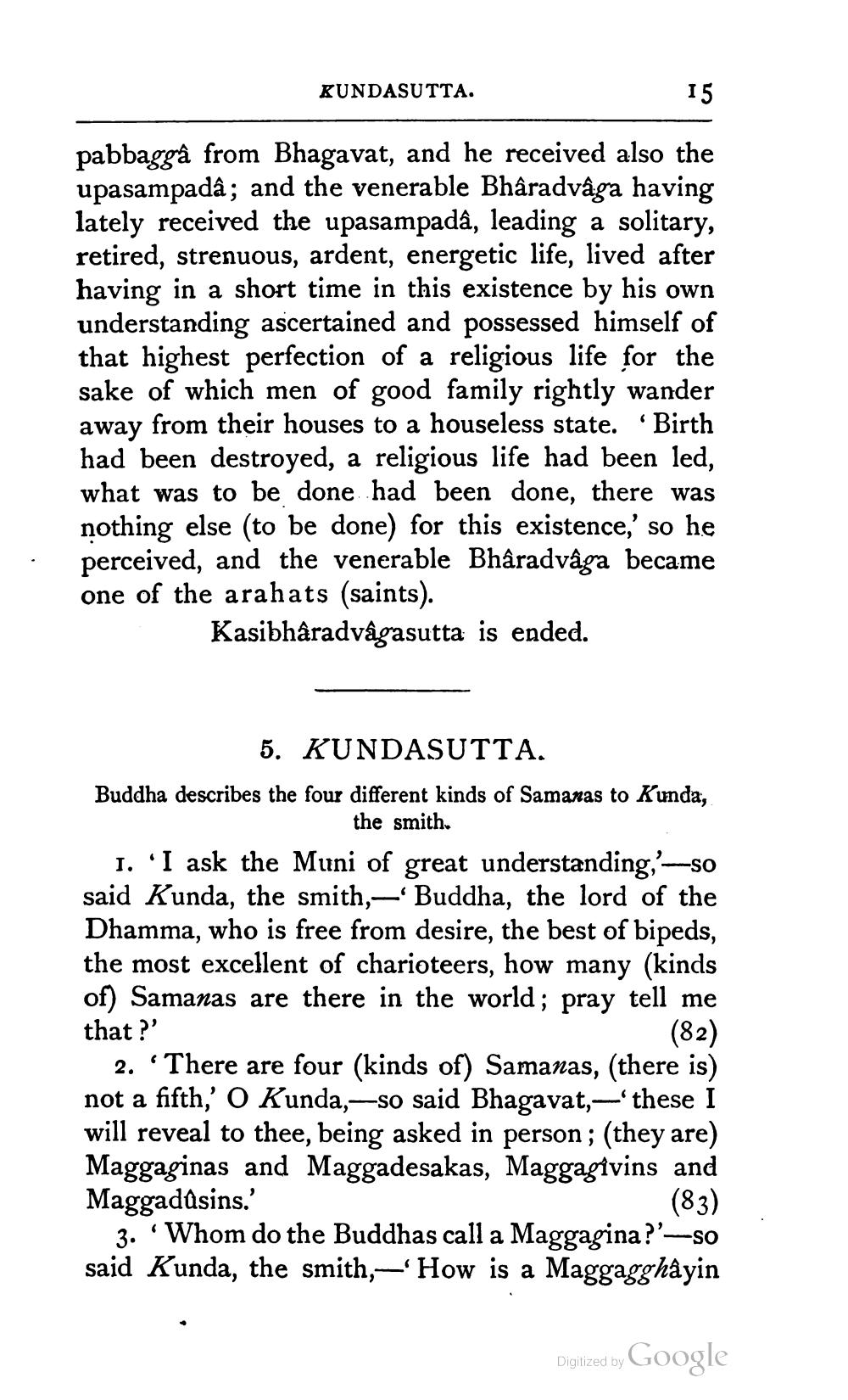________________
RUNDASUTTA.
TK
pabbaggå from Bhagavat, and he received also the upasampadâ; and the venerable Bhâradväga having lately received the upasampada, leading a solitary, retired, strenuous, ardent, energetic life, lived after having in a short time in this existence by his own understanding ascertained and possessed himself of that highest perfection of a religious life for the sake of which men of good family rightly wander away from their houses to a houseless state. 'Birth had been destroyed, a religious life had been led, what was to be done had been done, there was nothing else (to be done) for this existence,' so he perceived, and the venerable Bhâradvàga became one of the arahats (saints).
Kasibhâradvâgasutta is ended.
5. KUNDASUTTA. Buddha describes the four different kinds of Samaras to Kumda,
the smith I. 'I ask the Muni of great understanding,'-so said Kunda, the smith,— Buddha, the lord of the Dhamma, who is free from desire, the best of bipeds, the most excellent of charioteers, how many kinds of) Samanas are there in the world; pray tell me that?'
(82) 2. “There are four (kinds of) Samanas, (there is) not a fifth,' O Kunda,—so said Bhagavat,—these I will reveal to thee, being asked in person ; (they are) Maggaginas and Maggadesakas, Maggagivins and Maggadůsins.'
(83) 3. “Whom do the Buddhas call a Maggagina?'-so said Kunda, the smith,—How is a Maggagghầyin
Digitized by Google




